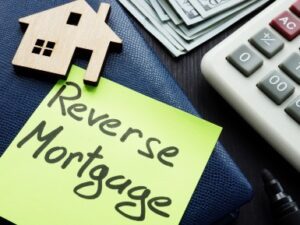Older adults have lots of options when it comes to their living arrangements. As people maintain good health and mobility later in life, many choose to stay in their current homes or to downsize into more appropriately sized homes of their own. Those who make the decision to age in place in a home they own may be able to supplement their monthly income through a loan known as a reverse mortgage.
One of the perks of a reverse mortgage is that it does not require monthly payments to pay it back. This makes it appealing to those in retirement who are looking for a way to supplement their income or save for unplanned expenses. While there are some rules about how the funds may be used, the loan can provide financial flexibility for retirees.
Reverse mortgage specialist Larry McAnarney advises us that a reverse mortgage may be appropriate in some cases, but it’s important to weigh the pros and cons before you commit. Larry offers the following information and guidance about these home equity loans for seniors.
What is a Reverse Mortgage?
Let’s start with the basics. The most common type of reverse mortgage is the home equity conversion mortgage—HECM for short—which is insured by the Federal Housing Administration (FHA) and regulated by the U.S. Department of Housing and Urban Development (HUD).
Congress established the HECM program in 1988 to help meet the financial needs of older homeowners. A HECM reverse mortgage works by converting a portion of the home’s equity into cash. The borrowers receive money from the equity they’ve built up in their homes, or the equity can be used to purchase a different home.
Who is Eligible for a Reverse Mortgage Loan?
To be eligible for an HECM Reverse Mortgage, the following conditions must be met:
- The borrowing homeowner must be 62 years or older. In cases where one of the homeowners is younger than that cutoff, they can be included as a non-borrowing spouse on the application, as per the HUD guidelines. This is important to note as it can provide the non-borrowing spouse with certain protections if the borrowing spouse passes away.
- The property in question must be the primary residence. Reverse mortgages are not applicable to vacation homes, secondary residences, or investment properties.
- The remaining mortgage balance must meet the limits set by the reverse mortgage lender.
What Determines the Amount of a Reverse Mortgage Loan?
The amount you can receive from a reverse mortgage depends on several factors, including:
- The current appraised value of the home
- The outstanding mortgage amount
- The age of the youngest homeowner
- The costs involved in obtaining a reverse mortgage
Generally, the available funds from a reverse mortgage increase with 1) older age of the homeowner; 2) higher value of the home; and 3) a lower mortgage balance. Homeowners typically need to have at least 50% equity in their home, depending on age, as the reverse mortgage will first be used to settle the existing mortgage balance.
What Key Points Should Be Considered Before Opting for a Reverse Mortgage?
1. Duration of Stay in the Home
Reverse mortgages are exclusively for primary residences. While you retain ownership of the home, the lender places a lien on the property. If you plan to permanently change your primary residence, the loan balance must be repaid.
HECMs are non-recourse loans, meaning the borrower (or their estate) will never owe more than the lower of the loan balance or the property’s value. Repayment is limited to the home’s value, and no other assets are required to settle the debt. However, it’s important to weigh the various fees and closing costs, which are typically higher than those for conventional mortgages. These include lender fees, closing costs, and upfront mortgage insurance.
If your stay in the home is short-term, consider whether the total cost of the reverse mortgage justifies its benefits. In some cases, waiting and eventually selling the home might be more financially savvy.
2. Plans for Inheritance
Repayment of reverse mortgages usually occurs through the sale of the home, with the heirs keeping any remaining balance after loan repayment. Heirs have the option to keep the home by either paying off the reverse mortgage or securing a new mortgage to cover the reverse mortgage balance.
As discussed earlier, consideration should also be given to other residents in the home. If you’re married and both you and your spouse are eligible and joint owners, both can be included in the reverse mortgage. In such cases, if one spouse passes away, the surviving spouse continues as the homeowner with the reverse mortgage.
Reverse mortgages are tailored for retirees but may not suit every homeowner. After considering these four questions, consulting with an approved provider can help determine if a reverse mortgage is a suitable option for you.
Larry McAnarney is a Reverse Mortgage Specialist with Mutual of Omaha. For additional information, or any questions about reverse mortgages, please visit his website or contact Larry at lmcanarney@mutualmortgage.com.






